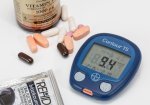Stress and Cardiovascular Disease, Some Fascinating Insights
The correlation between stress and cardiovascular disease has some scientific proof behind it. Stress is not good for your blood pressure neither is it good for your heart. In essence, it is not good for your cardiovascular well being.
Earlier own it had already been shown in the study of hypertension science that stress and anxiety, in particular, affected the cardiovascular system particularly blood pressure. The effect of stress on blood pressure is even today considered the fundamental cause of white coat syndrome which causes blood pressure numbers to spike when blood pressure is taken in the doctor's office.
In 2008, the Journal of the American College of Cardiology (2008 Apr 1; 51(13): 1237–1246) published one of the most informative insights into the relationship between stress and cardiovascular disease. In essence there are two types of stress worthwhile to consider and how they my impact on cardiovascular health.
It's not stress that kills us, it is our reaction to it - Hans Selye
Acute Stress and Cardiovascular Disease
According to some researchers, acute stress refers to stressors that last under a week. Examples may include stress induced by sudden major life changing events such as a disaster. For example, earthquakes qualify under acute stressors and so have been shown to have a negative impact on cardiovascular health.
In this regard, particular examples include what was observed following earthquakes in Japan. According to researchers who published in the Journal of the American College of Cardiology, earthquakes have been associated with increased cardiovascular risk.
The 1999 earthquake in Japan, for example, is cited in which 12 individuals under investigation had their heart rate increasing within minutes of the earthquake by up to 160 beats per minute.
Furthermore, researchers writing back in 1998 in the journal International Journal of Hematology (1998 Feb;67(2):123-9) noted that following the Hanshin-Awaji earthquake in Japan in 1995 there were notable hemostatic activation and cardiac events in some individuals as a result of the massive stress related to the disaster.

The details are that scientists observed an increase in blood pressure and that some of the people lost nocturnal blood pressure dipping. Under normal circumstances, blood pressure is supposed to dip at night such that it is abnormal if this doesn't occur. It is also abnormal if blood pressure goes up at night as we have written about elsewhere on this site.
In addition, earthquake induced stress also resulted in reported increased blood viscosity. Increased blood viscosity is itself a risk factor for cardiovascular events the reason why blood thinning drugs such as aspirin are frequently used when treating cardiovascular ailments.
Another set of researchers whose findings were published in 2008 in the International Journal of Cardiology (2008 Sep 16;129(1):152-4) observed that "physical and psychological stress induced by catastrophic events such as earthquakes can lead to sudden death, acute coronary syndrome, stroke, and other cardiovascular diseases".
Their conclusion followed an investigation focused on cases of pulmonary embolism following an earthquake in Niigata, Japan. The researchers noted that pulmonary embolism cases increased in the 4 weeks following the earthquake compared to the period prior the disaster. Sudden death also increased and this, the researchers further noted, was also attributed to physical stress associated with being trapped in automobiles for prolonged periods of time.
It is worth highlighting that some researchers have pointed out that the actual time of the disaster does matter in terms of the stress generated and its impact on cardiovascular risks.
In this regard, they state that night disasters may have a higher effect considering that in general cardiovascular risk is at its greatest in the waking hours
Furthermore, researchers note that while the most widely available data has been to do with earthquakes, other acute stressors such as agonizing bereavement or courthouse stress are capable of producing cardiovascular events such as sudden death.
As noted earlier apart from the relationship between acute stress and cardiovascular disease there is also another form of stress that has an effect on cardiovascular well being.
Chronic Stress and Cardiovascular Disease
The other type of stress that researchers have considered in view of its association with cardiovascular disease is chronic stress. Also known as long-term stress, unlike acute stress, this type of stress is continuing in nature and examples include dysfunctional relationships such as marital discord, job stress and daily hassles.
Cardiovascular science is increasingly acknowledging that everyday hassles do have an affect on daily morale which itself could have serious health implications.
An interesting angle that was revealed by researchers in a 1999 study published in the Journal of Psychosomatic Research (1999 Mar;46(3):229-40) pointed out that long term hassles were also associated with neglect leading poor health behaviors and choices such as smoking and lack of exercise. Needless to say the cardiovascular benefits of exercise, for example, are well known.

In 2003, the journal BMJ shared fascinating insights into the relationship between chronic stress and cardiovascular disease. The study concluded that starvation combined with long-term stress "particularly at the onset of or during puberty, may increase vulnerability to later cardiovascular disease."
These conclusions followed a study looking into severe starvation during the 1941 to 1944 siege of Leningrad now St Petersburg in Russia.
The study involving some 5000 men discovered that some 30 to 60 years later, mean blood pressure increased by 3.3 mm Hg for systolic blood pressure (top number) and by some 1.3 mm Hg for diastolic blood pressure (bottom number). Furthermore, death from ischaemic heart disease and haemorrhagic stroke increased as a result of the long term effects of stress endured during the siege.
Matters of the Heart Matter
In 2002, a study in Archives of Internal Medicine (2002 Feb 11;162(3):309-15) shed intriguing light on the relationship between chronic stress and cardiovascular disease. It showed that work and marital stress was responsible for cardiovascular death in men.
The study had a 9 year follow-up period and involved over 12000 men. The research showed that increasing the number of different work stress and marital divorce during the period of the study were linked with all cause death as well as cardiovascular related death.
You may have probably come across stress being causally associated with heart attack. This is in fact scientifically proven. Stress can indeed lead to acute myocardial infarction which is another name for heart attack.
Evidence backing this claim emanates from a number of different studies one of which is published in the Lancet (2004 Sep 11-17;364(9438):953-62) a highly regarded medical science journal. According to the 2004 Lancet published study, the "presence of psychosocial stressors is associated with increased risk of acute myocardial infarction".
Researchers investigated a sample of over 24700 people from over 50 countries. Participants were interviewed about work stress, stress at home, financial stress, and major life events that occurred in the past year. Interestingly, people who suffered heart attack also had a high prevalence of these four stress factors compared to the control group.
Furthermore, researchers also discovered that the effect stress had on the main group vs control group remained consistent right across world regions, the various ethnic groups and gender. This indicates that stress and cardiovascular disease, in particular heart attack, is a universal issue.
Further studies to support the idea that stress is detrimental to cardiovascular health include a review in the journal Nature Reviews Cardiology (2012 Apr 3;9(6):360-70) pointing out that accumulated data does point to stress as a predictor of the occurrence of coronary heart disease (CHD).
In addition, the review also suggested that being socially isolated or lonely increases the risk of a first CHD event. Stress was also shown to be a bad factor in individuals with atherosclerosis or narrowing of blood vessels due to clogging. This increased the risk of a trigger of atherosclerosis complications such as cardiac arrest.
Summary of Stress Factors Associated with Cardiovascular Disease
In the final analyses, the following is a summary of stress factors that have been associated with cardiovascular disease and related problems...
- Disasters e.g earthquakes
- Wars
- Work Stress
- Home Stress
- Financial Stress
- Marital Stress e.g divorce
- Dysfunctional Relationships
- Loneliness/Isolation
- Emotional stress
- Major life events e.g Bereavement
- Daily Hassles
- Long working hours
Stress Reduction Techniques
In recognition of the relationship between stress and cardiovascular disease, some researchers have began developing guidelines on how to better manage stress in the work place, for example, as a way of preventing immediate and future cardiovascular problems.
In the absence of a wide availability of these guidelines which are only slowly beginning to take root, the following are some considerations to better manage stress at a personal level.
- Try relaxation techniques
- Aerobic exercise
- Eating healthy
- Eating Cardiovascular Beneficial Foods e.g Fish oil
- Limiting alcohol consumption
- Getting regular sleep
- Eat fruits and veg daily
- Having a generally positive outlook
- Yoga (which has been shown to have cardiovascular benefits)
- Chiropractic care
[Last updated: 28 November 2017]

|
Home >Stress and Cardio Disease |
Cardio Definition > Stress and Cardiovascular Disease |
Disclaimer
Information contained on this website is not meant to replace your doctor's advice.
(c) All Rights Reserved. 2010-2018









